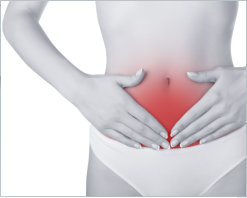[Home] [Irritable Bowel Syndrome] [Diarrhoea] [Digestive Disorders] [Coeliac Disease] [Colon Cleansing] [Constipation] [Digestive Health] [Bowel Problems] [Bad breath] [Candida albicans]





Irritable Bowel Syndrome (IBS)
Irritable bowel syndrome (IBS) is considered to be a chronic intestinal problem, which leads to unusual sensitivity and muscle
activity. It is extremely common, afflicts mainly females and ordinarily develops before the age of thirty-five.
Often it is called spastic colon, spastic colitis, mucous colitis or nervous stomach. Whatever its title, IBS shouldn't be confused with
inflammatory bowel diseases (IBDs), such as Crohn’s disease and ulcerative colitis. IBS is a functional problem, where the function
of the bowels may be abnormal, but no structural irregularities exist.
Broadly speaking, there are considered to be two types of IBS:
IBS-C: Here, material in the large intestine progresses too slowly and, as a result, too much liquid is absorbed. This leads to
constipation.
IBS-D: This type of IBS involves the contents of the large intestine progressing too quickly, which means that not enough liquid is
absorbed. This causes diarrhoea.
IBS will often bring about abdominal discomfort and, in many cases, psychological distress due to its chronic nature.
Those individuals who experience IBS very rarely openly talk about it. Nevertheless, surveys approximate its likely incidence in the
United States to be approximately 10% - 20% of the population!
What causes Irritable Bowel Syndrome?
Unfortunately, doctors don’t know exactly why or how IBS occurs. Actually, some doctors take the view that it doesn't really exist
and is psychosomatic in origin.
Nonetheless, this point of view is extensively rejected by the complementary and alternative medicine profession. Additionally, it
happens to be the most common disorder diagnosed by gastroenterologists and one of the most common disorders seen by primary
care physicians.
Although the actual cause, or causes, of IBS are uncertain:
•
stress
•
depression
•
inadequate intake of dietary fibre
•
hypersensitivity to specific hormones
•
food allergies and sensitivities (e.g. to gluten)
•
problems with the way signals are sent between the brain and the digestive system
•
poor diet (including diets high in sugar and/or fat)
•
micro-organisms in the gut (including bacteria and parasites)
•
yeasts
•
coeliac disease
•
and medications,
may all contribute to the onset.
What are the symptoms Irritable Bowel Syndrome?
Irritable Bowel Syndrome isn't thought of as a disease itself. The term “syndrome” may appear alarming, but in fact it is only the
word used by doctors to refer to a group of symptoms.
The symptoms of IBS can have a significant impact on the quality of life of those afflicted with it and may even be debilitating.
Symptoms and severity vary from individual to individual (and will often change over time). For example for some, IBS is a chronic
(continuous) disorder that characterises daily living. For others, it is a random and unwelcome visitor. Everyone suffers from an
occasional bowel disturbance, but for those with IBS, the symptoms are more intense or manifest more frequently.
Whether or not persistent or moderate, its most usually known to bring about a mixture of any of the following:
•
abdominal pain
•
indigestion
•
bad breath (halitosis)
•
flatulence
•
bloated tummy
•
fullness
•
cramping pains
•
weariness
•
headaches
•
passage of mucous
•
urgency or a feeling of incomplete bowel motions
•
and a change in bowel habits (i.e. constipation and/or diarrhoea).
Many of these symptoms are very common in other conditions too, which can make it quite difficult to obtain a definite diagnosis.
More uncommon symptoms include a feeling of sickness and throwing up.
Unfortunately, there is no known cure for IBS. However, it's believed that its symptoms may be managed in a number ways. For
example, sensible lifestyle, diet changes and appropriate supplementation.
Eating fatty, refined foods could lead to a stomach upset in almost anyone. However, certain foods and drinks (like greasy burgers,
sugar, chocolate, milk products, caffeine and alcohol) are thought to particularly aggravate the symptoms of IBS, by (amongst other
things) increasing the body’s output of digestive gases and making the blood more acidic.
Similarly, stress is thought to raise the motility (the rhythmic contractions) of the intestine that propels food through the digestive
system and contributes to abdominal pain and irregular bowel functions.
*Before changing your eating habits or taking health supplements, always be sure to consult your physician or qualified health
practitioner (particularly if you are pregnant, breastfeeding or on medications).

Diarrhoea and other digestive health problems




